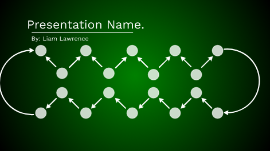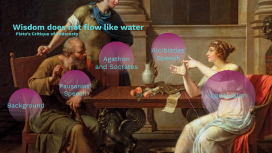Gallery Prezi Template
Transcript: Psyche: the soul Ology: the study of Pre 1920- The science of mental life 1920s-1960s- The science of observable behavior The study of the brain and human behavior The study of the behavior and mental processes -Becker attempts to explain the difference in wages and inequality -Any investment and all people's wages should be considered investments in the economy -Human capital can be affected by education, alcoholism, and gender gaps Becker's Sources / Future Economists http://www.educreations.com/lesson/view/disc/12189750/?s=Lv39E6&ref=link Inspirations -Milton Friedman, who applied economic theory to practical, everyday events - T.W. Schultz who pioneered of the idea of human capital, discussing concepts like fixing education Unit 1: History and Approaches http://www.educreations.com/lesson/view/human-capital-becker/12187305/?s=iZr5V2&ref=app Smith/Marx Discrimination Milton Friedman -"individuals maximize welfare as they conceive it, whether they be selfish, altruistic, loyal, spiteful, or masochistic" Descartes- Agreed with Socrates and Plato (innate ideas), mind being entirely distinct from the body=survive death, ”animal spirits”=nerves;True knowledge comes through reasoning Heredity provides individuals with inborn knowledge and abilities and we use this to reason (we are born knowing stuff) We are to doubt everything – that’s the only way we can be certain about anything I think, therefore I am (because we think, we exist) Locke- Mind at birth on which experience writes; Saw the mind as receptive and passive, with its main goal as sensing and perceiving Tabula rasa – we are born as a blank slate, everything we know is learned (today many psychologists disagree!!) This is in direct contrast to the rationalist Descartes Empiricism Crime -For Becker, crime was simply a matter of cost versus benefit -Punishment V Financial Gain -Argued increased punishment would help reduce crime, skewing the risk analysis of the criminal -Is crime socially harmful? Yes--diverted funding to prisons, weapons, police Expanded sociology and economics into new horizons -Michael Gottfredson--used Becker's theories to delve deeper into criminal minds -Richard Swedweg--explored connections between economics and sociology, defines "rational choice theory" Students -Robert Tamura, who conducted research in human capital -John Matsusaka, who studied human behavior Philosophical Perspectives -Discrimination towards race, gender, and personal taste can shift AD left or right -The actual discrimination in the market place on a minority group depends on that of the employers, workers, consumers, school, and governments -Becker states that competition tends to decrease discrimination -When the minorities make up a small part of society, the cost of discrimination is less in comparison to a scenario in which minorities represent a larger part in society and discriminated against. Plato & Socrates- Mind is separable from body and continues after the body dies; knowledge is innate Aristotle (300 BC)- loved data; careful observation; knowledge is not pre-existing, it grows from experiences stored in our memory; theorized about learning & memory, motivation & emotion, perception, and personality. What is psychology? Human Capital Family -Becker's work in the field of families includes analysis of marriage, fertility, social security, and much more -Jobs affect the stability of the marriage -Having and raising children affects rules of the family -Family ties are not necessarily linked by altruism but by economic incentive (i.e. people marrying into richer families for money) -Rotten Kid Theorem=misbehaving boys have the incentive to be nice to their parents in order to get more "bequeaths" (inheritance) -There exists a lower demand for children due to psychological costs, such as taking care of the child -Basically, a cost-benefit analysis when raising a child Wilhelm Wundt (1879) University of Leipzig (first lab) Reaction time experiment Seeking to measure what? Introspection AP Psychology -Expands from Smith and Marx's claims of human selfishness; Becker evaluates altruism in the family and towards loved ones -Criticizes Smith's studies as overly reductionist-claims people are complex and have a multitude of interests -Marx takes a more justice-focused view, claiming that businesses would exploit laborers and seek surplus labor to decrease cost -Disagrees with competition as a good regulator For example... Philosophical Perspectives Psychology is born

















